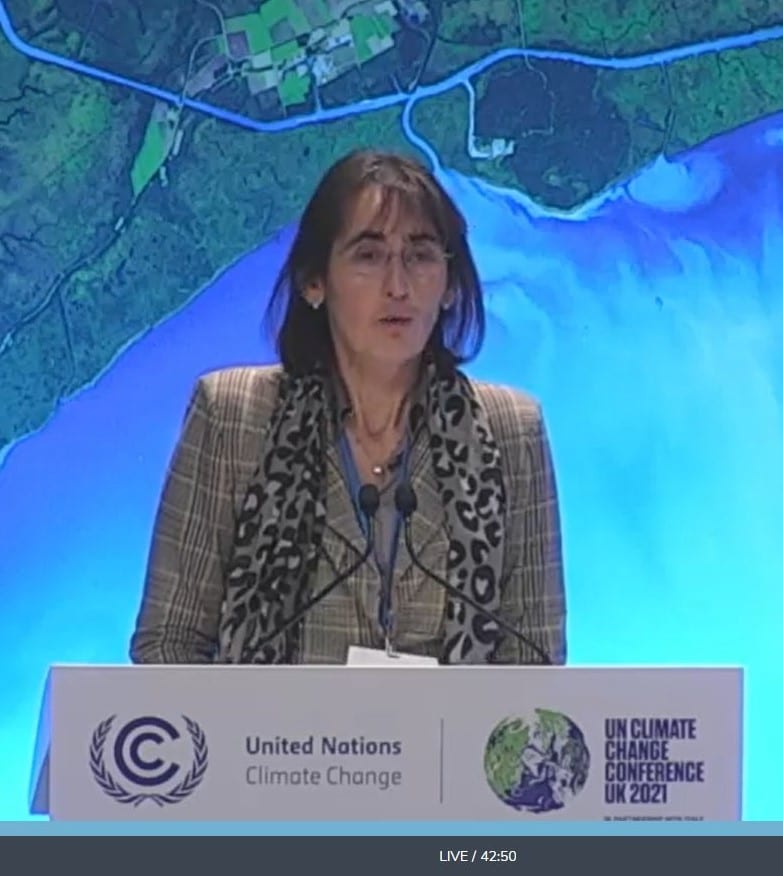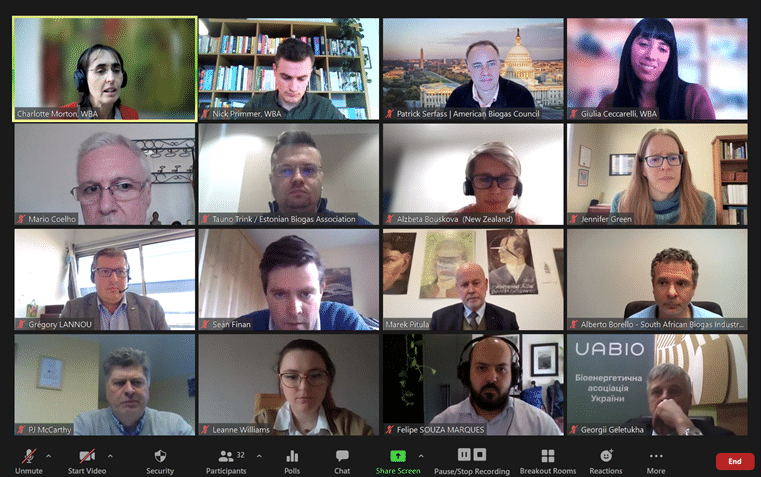
Global biogas trade body gathers national associations from around the world to support the Global Methane Pledge
- The World Biogas Association brings together 30 National Associations from 24 countries to support the delivery of the Global Methane Pledge, which aims to reduce methane emissions by 30% of 2020 levels by 2030.
- Fully deployed, the anaerobic digestion and biogas sector could deliver 50% of the methane reduction targets set out in the Pledge simply by recycling the 105bn tonnes of methane emitting organic wastes humans produce every year
- Over 110 countries have now signed up to the Pledge and the WBA has launched the quarterly roundtable to facilitate national associations speed up delivery of biogas’ contribution to the Pledge.

At COP26 in Glasgow last November, the World Biogas Association (WBA) co-hosted an official side event in which it called for the world to usher in a new era of waste management to reduce methane emissions. This was in line with the Global Methane Pledge, which commits countries to reduce methane emissions by 30% against 2020 levels by 2030.
Fully deployed, anaerobic digestion (AD) alone could deliver 50% of this pledge (1). Eight years is, however, a very short timeframe to do so. This is why, to actively support the over 110 countries (and counting) that have committed to the pledge, the WBA launched the National Associations Roundtable, which held its first meeting online on 18 January.
The aim of the Roundtable is to bring together national and regional biogas associations of the world to learn from each other, collaborate and share knowledge and expertise to ensure that the biogas industry plays its part in reducing greenhouse gases emissions and is included in every country’s Nationally Determined Contribution (NDC). With the need to also facilitate delivery on the ground, this means that, more than ever, it will be critical for those countries to have strong national associations to make this happen.
Learning from each other, sharing experiences of what is working/not working and identifying tools that could help all national associations and their members be as effective as possible in their country is the core objective of the roundtable, which is scheduled to take place every quarter.
 Leaders of 30 National Associations representing 24 countries attended the inaugural January meeting, which looked at the scale of the challenge they face to facilitate delivery of the Paris Agreement and Global Methane Pledge commitments by their members in just eight years. They explored how, through collaboration and exchange of knowledge, they could help speed up development on the ground.
Leaders of 30 National Associations representing 24 countries attended the inaugural January meeting, which looked at the scale of the challenge they face to facilitate delivery of the Paris Agreement and Global Methane Pledge commitments by their members in just eight years. They explored how, through collaboration and exchange of knowledge, they could help speed up development on the ground.
Charlotte Morton, WBA Chief Executive, commented: “We are extremely encouraged by the number and commitment of the national associations who responded to our call to establish this international support network. It is unprecedented in the biogas industry. At our inaugural meeting, we welcomed participants from North America, South America, Europe, Africa, Asia, and Oceania who all agreed on the value of working together to address current global challenges and ensure that anaerobic digestion and biogas contribute fully and effectively to the climate change emergency. I look forward to working with them in the coming months and putting our industry fully on the radar of world governments as they work to deliver on their Global Methane Pledge”.
(1) If all collectible and unavoidable organic wastes were recycled via AD, the industry could cut methane emissions by nearly 1200 MtCO2e – this represents 50% of the Global Methane Pledge’s target to cut methane emissions by 30% by 2030
– ENDS –
For further information:
Jocelyne Bia, Senior Communications Consultant
jbia@worldbiogasassociation.org; +44 (0)20 3176 0592
Notes to editors:
Launched at COP22 in Marrakesh in 2016, the World Biogas Association is the global trade association for the biogas, landfill gas and anaerobic digestion (AD) sectors, and is dedicated to facilitating the recycling of all organic wastes, crop residues and break crops through biogas globally. It believes that the global adoption of biogas technologies is a multi-faceted opportunity to produce clean, renewable energy, bioCO2 and natural fertilisers while resolving global issues related to development, public health, and economic growth. www.worldbiogasassociation.org

